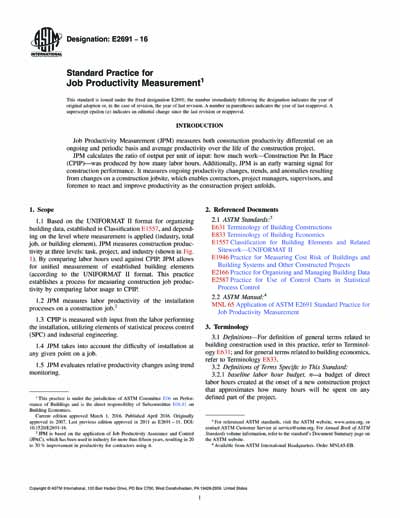Historical
ASTM E2691-16
Standard Practice for Job Productivity Measurement
1.1 Based on the UNIFORMAT II format for organizing building data, established in Classification E1557, and depending on the level where measurement is applied (industry, total job, or building element), JPM measures construction productivity at three levels: task, project, and industry (shown in Fig. 1). By comparing labor hours used against CPIP, JPM allows for unified measurement of established building elements (according to the UNIFORMAT II format. This practice establishes a process for measuring construction job productivity by comparing labor usage to CPIP.
1.2 JPM measures labor productivity of the installation processes on a construction job.2
1.3 CPIP is measured with input from the labor performing the installation, utilizing elements of statistical process control (SPC) and industrial engineering.
1.4 JPM takes into account the difficulty of installation at any given point on a job.
1.5 JPM evaluates relative productivity changes using trend monitoring.
Content Provider
ASTM International [astm]






